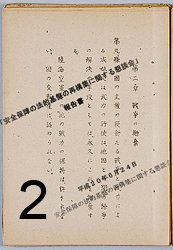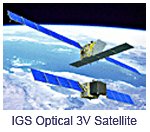Continuing from the last posting, this segment reviews the substance of Part I and Part II of the report, with particular emphasis on Part I. It will be recalled that  Part I was entitled “The National Security Environment of Japan and the Need for a Reconstruction of the Legal Foundation”.
Part I was entitled “The National Security Environment of Japan and the Need for a Reconstruction of the Legal Foundation”.
Part I, section 1
It begins by establishing the premise that it is necessary for the national security policy of Japan to adapt to changes in the international environment. Moving from that premise, the report then establishes that as a country governed by the rule of law, the national security policy must be constructed on a foundation of clearly defined laws. However, it argues that this foundation must constantly be re-examined so as to accord with the reality of shifts in the national security threats. It asserts that while the legal foundation as it now exists is based in part on the Constitution, it also reflects the historical reality, both in political and in strategic terms, that existed at the time of its formation. Since those circumstances have changed, it is appropriate to re-examine and reform the legal foundation to ensure it complies with today’s realities.
This conclusion is followed by several qualifiers, regarding the degree of change in the threat environment that makes such reform necessary, and the assertion that “it goes without saying that the interpretation of law cannot simply be a convenience to be adjusted in conformity with the circumstances. But nor does it mean that looked at legally, the interpretation that has been maintained until now is the only possible rational interpretation.” It then goes on to criticize the government interpretation of Art. 9 as being excessively complicated and inconsistent with international law.

 to use space for the purposes of contributing to national security. This constituted a marked departure from an almost 40 year old policy of strict non-military use of outer space.
to use space for the purposes of contributing to national security. This constituted a marked departure from an almost 40 year old policy of strict non-military use of outer space.